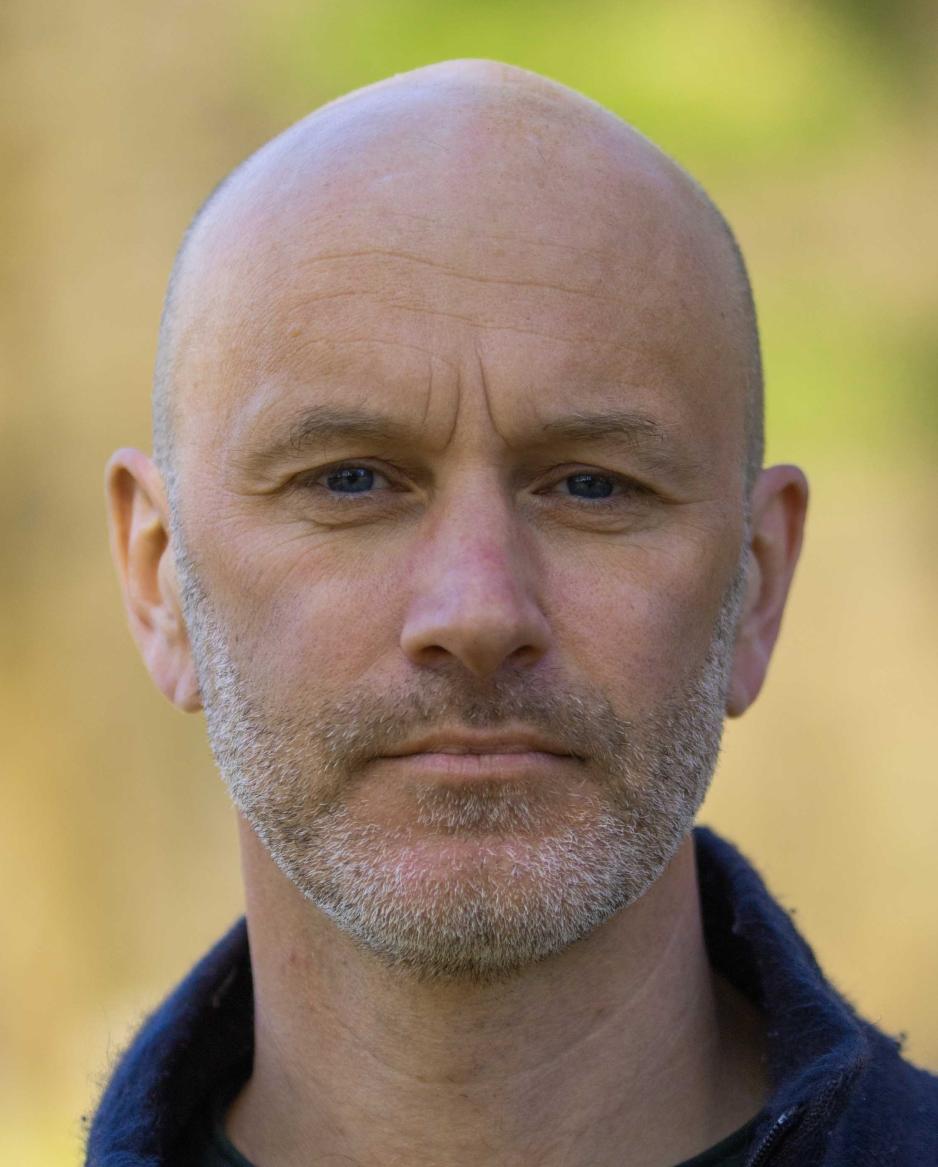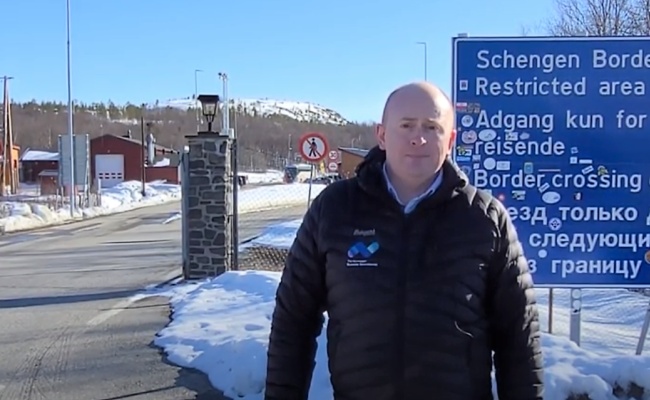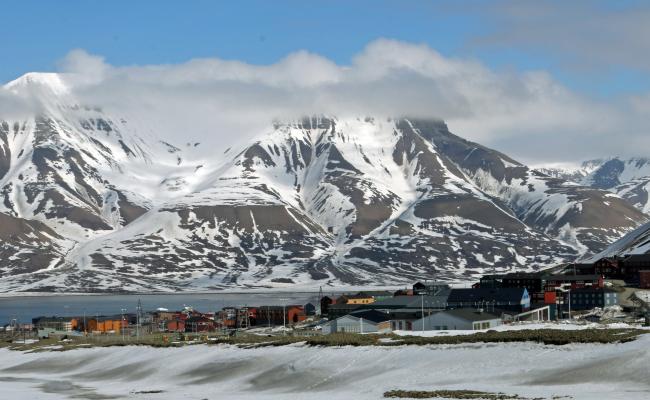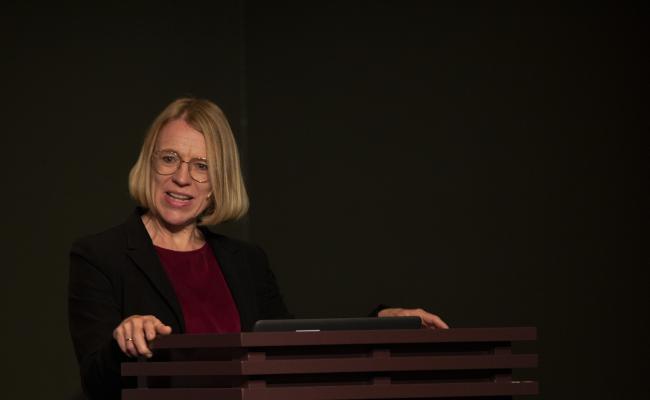Intensive High North Diplomacy at Work to Ensure the Future of the Arctic Council
Norway's Minister of Foreign Affairs Anniken Huitfeldt and the Russian Minister of Foreign Affairs Sergej Lavrov during a press conference after their bilateral meeting in Tromsø last fall. The meeting was held in connection with the Barents Euro-Arctic Council's meeting of ministers of foreign affairs. (Photo: Hilde-Gunn Bye/High North News).
The date is now set for the start of Norway's chairmanship of the Arctic Council following Russia. "Preserving the Arctic Council as the most important international forum for handling Arctic issues is one of the main tasks of Norwegian foreign policy," stresses the State Secretary of the MFA.
Norway will take over the chairmanship of the Arctic Council from Russia on the 11th of May 2023. This was stated by State Secretary Eivind Vad Petersson (Labor) in the Ministry of Foreign Affairs during the Nansen High North Seminar at the Fridtjof Nansen Institute last week.
On that occasion, Russia has invited to a Ministerial Meeting in Siberia. Although neither the Norwegian Minister of Foreign Affairs Anniken Huitfeldt (Labor) nor State Secretary Petersson will be participating from the political management, the Ministry of Foreign Affairs is now working hard to ensure an orderly handover of the chairmanship – and to preserve the council as the most important international forum in the Arctic.
The State Secretary's speech inspires optimism in one of Norway's leading experts on the Arctic Council.
State Secretary in the Ministry of Foreign Affairs, Eivind Vad Petersson (Labor), spoke about the future of the Arctic Council during a seminar at the Fridtjof Nansen Institute on Thursday the 1st of December. (Photo: Hilde-Gunn Bye)
A foreign policy task
As a result of Russia's invasion of Ukraine, the activity of the Arctic Council was put on hold in March. This summer, however, the working groups' project activity was resumed without Russian participation.
"Without overdramatizing, it is not a given that the Arctic Council will survive what we are facing now. I will be surprised if we come to the point where the council is formally dissolved. However, it is not guaranteed that it remains as relevant and important as it has been after the Ottawa Declaration of 1996 [about the establishment of the council, journ.note]," says Petersson.
He specifies that Norway has a particular responsibility as the incoming chairman.
"Preserving the Arctic Council as the most important international forum for handling Arctic issues is one of the main tasks of Norwegian foreign policy. This requires intensive High North diplomacy," the State Secretary points out.
What we hear is an unambiguous ambition to preserve the Arctic Council.
There are opportunities
State Secretary Petersson has been to the other Arctic capitals, except Moscow, during the last few weeks to ensure that the state's come to an agreement on the way forward.
"It is based on a recognition of the fact that it is in our Arctic states' obvious national interest that we continue to have our hands on the wheel when it comes to the further development of the Arctic. Because there are enough actors all around the world knocking on our door, trying to get in. And there are other cooperation organs and arenas which would like a more prominent role," he adds.
"In order for the Arctic Council to remain the most important cooperation organ in the north, it is necessary to find clever solutions to complicated issues," says Petersson.
"Any form of political cooperation with Russia is now out of the question. But there are still opportunities to continue the work in the Arctic at a lower level. Intensive work is now being done to achieve sufficient agreement and understanding around this."
"Today, I am a conditional optimist"
"Will the Arctic Council survive the crisis? What we hear now is an unambiguous ambition to preserve the Arctic Council and for it not to be
a council consisting of the seven Western Arctic states," says Senior Research Fellow Svein Vigeland Rottem at the Fridtjof Nansen Institute during Thursday's seminar.
"The door is open, but only marginally, for Russia to participate again when the time is right. It is, of course, highly uncertain when, but the agreement we see among the Arctic seven, and even Russia, prepares the ground for Norway's takeover of the chairmanship in the spring. The State Secretary was also clear that that is the aim at the political level," says the FNI researcher.
All of the Arctic states, including Russia, say that the Arctic Council is the most important cooperation forum in the North, he points out.
"Although there will not be a Ministerial Meeting with minister participation this time, we now hear that intensive diplomatic work is being done to bring the chairmanship from the Russian to the Norwegian side. The broad consensus that it should happen makes me believe that it will. These are uncertain times and of course, we can't know for sure, but today I am a conditional optimist," says Rottem.
It is necessary to find clever solutions to complicated issues.
The important climate and environmental cooperation
Cooperation takes place at three different levels in the council; a higher political level, an official level, and a working group level. The research cooperation takes place at the latter level. The important practical cooperation especially includes a mapping of climate and environmental challenges. Among other things, status reports that provide input for international climate and environmental negotiations are developed here, explains Rottem.
"Without Russia, which possesses large parts of the Arctic coastline, the cooperation is amputated. A number of researchers, especially in the climate and environmental field, have warned that we will understand much less of how to 'save the Arctic' without Russia," the researcher points out.
"The practical cooperation and information exchange is only an illustrating example of something we need to keep going, even if it involves some Russian actors as well," states Petersson.
Also read
This article was originally published in Norwegian and has been translated by Birgitte Annie Molid Martinussen.





